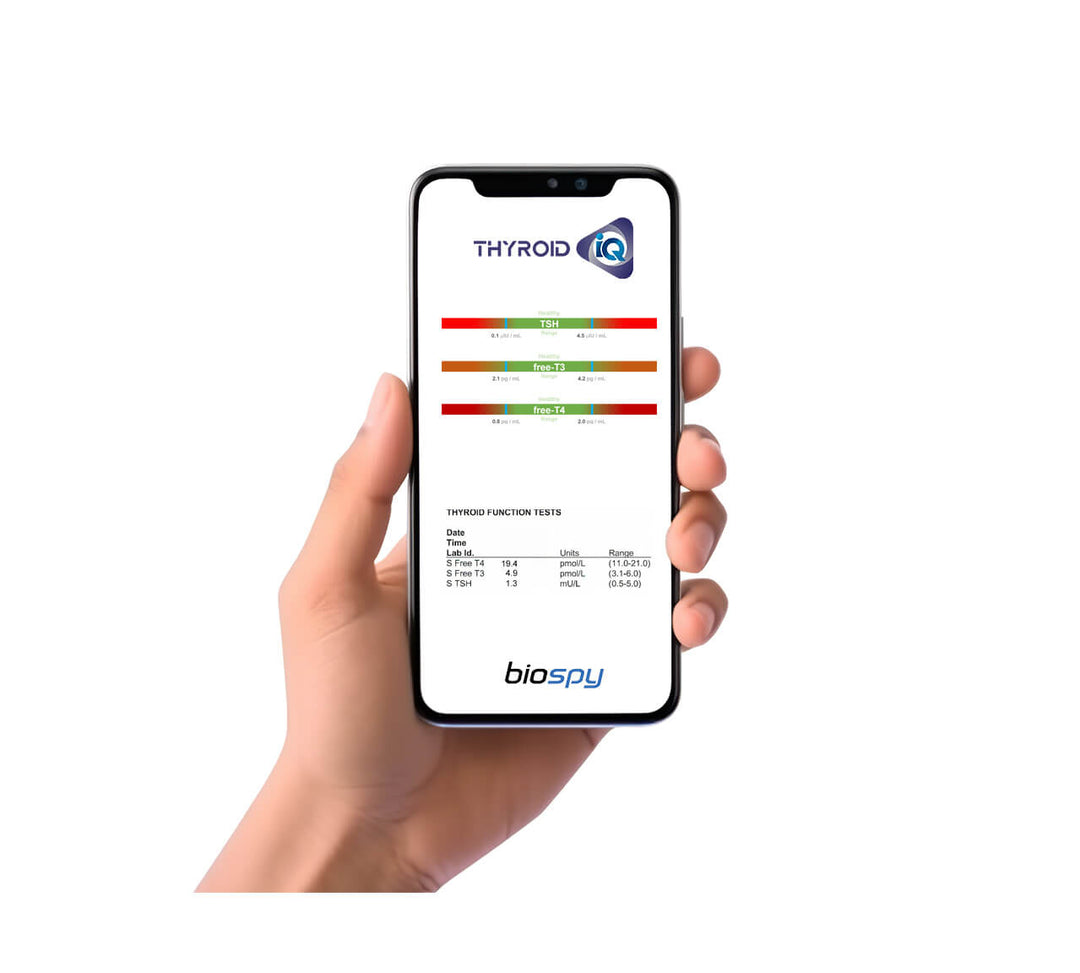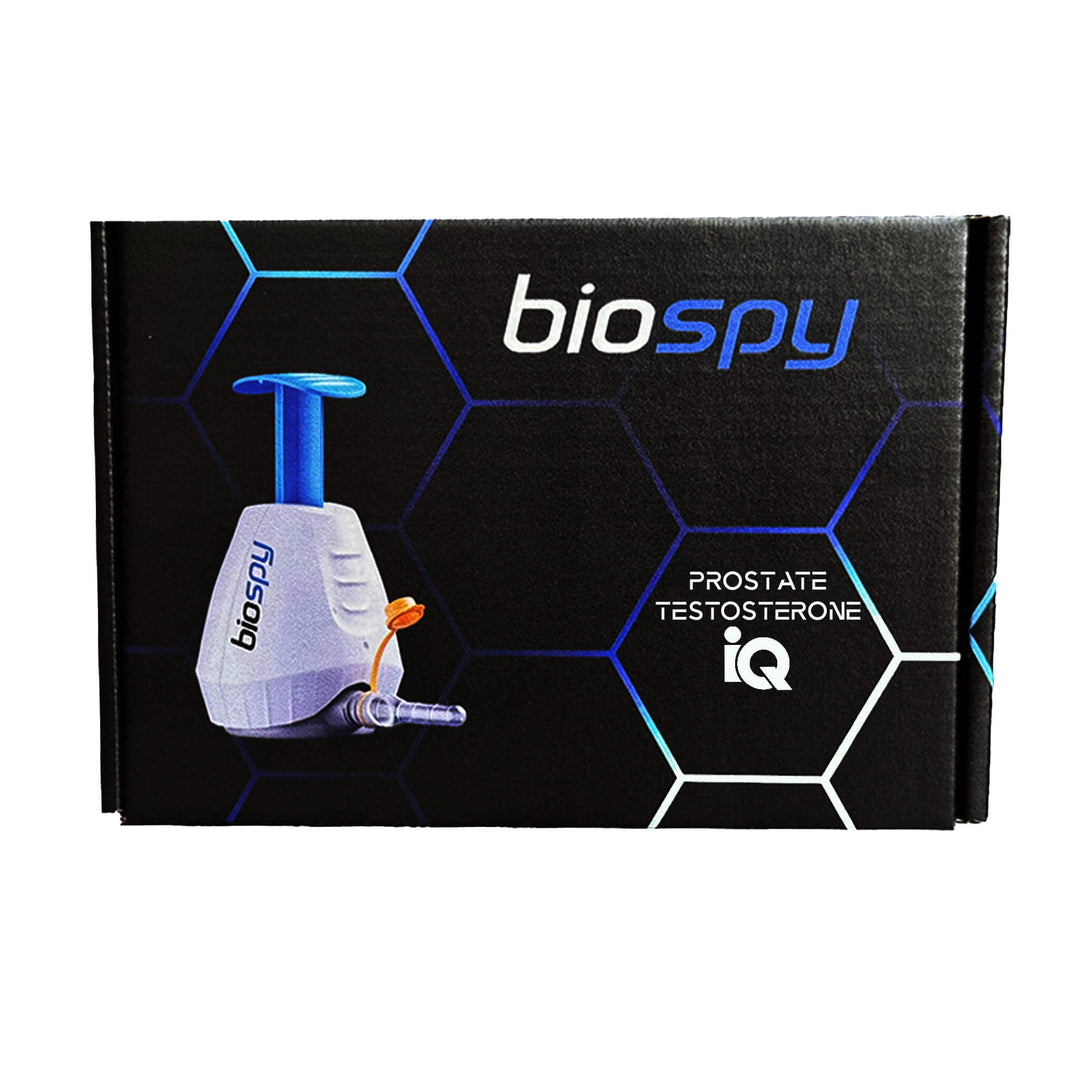
Prostate / Testosterone IQ®
1 in 8 men will develop prostate cancer in their lifetime. 1 in 4 have low testosterone.
This combination panel derives human serum on samples taken from work, home, or the office from the BioSpy blood collection device - for the most clinically accurate results It's used for routine screenings in men over the age of 40 and men experiencing low energy, fatigue, and weight gain.
Men's Health Testing
Prostate / Testosterone IQ® tests PSA and total testosterone for an important picture of men's health. The BioSpy Reference Laboratory uses next generation microfluidics, reducing blood volume requirements 1000 fold, all on a pain-free blood collection device that vastly outperforms dried blood spot testing¹ and with 100% correlation to traditional venous blood draws². This multiplexed test delivers on two of the most important laboratory tests for men over 40, with an important link: "American men who have higher testosterone levels may be more likely to undergo unnecessary prostate biopsy."

Best In Class Reporting
All BioSpy® results are emailed through our digital platform with easy-to-read, intuitive reports. HIPPA compliant, blockchain-encrypted cloud based software that never requires an app download gives you ease of use and piece of mind.
Spotlight
Prostate Cancer Screening with Prostate IQ®
Dr. Gregory Pinto talks about using the BioSpy Prostate IQ® test for prostate cancer screening.
Praise for BioSpy
What's Measured in Prostate / Testosterone IQ®
Total PSA
- Measures the level of prostate-specific antigen in the blood, an enzyme produced by the prostate. Elevated PSA levels can indicate prostate inflammation, enlargement (benign prostatic hyperplasia), or cancer. However, PSA levels can also be influenced by other factors, such as age and certain medical procedures.
Total Testosterone
- Assesses the total amount of testosterone, a key male hormone responsible for muscle mass, bone density, and sex drive, among other functions. Low testosterone levels can lead to symptoms such as fatigue, reduced libido, and decreased muscle mass, while high levels might be indicative of an underlying endocrine disorder.








